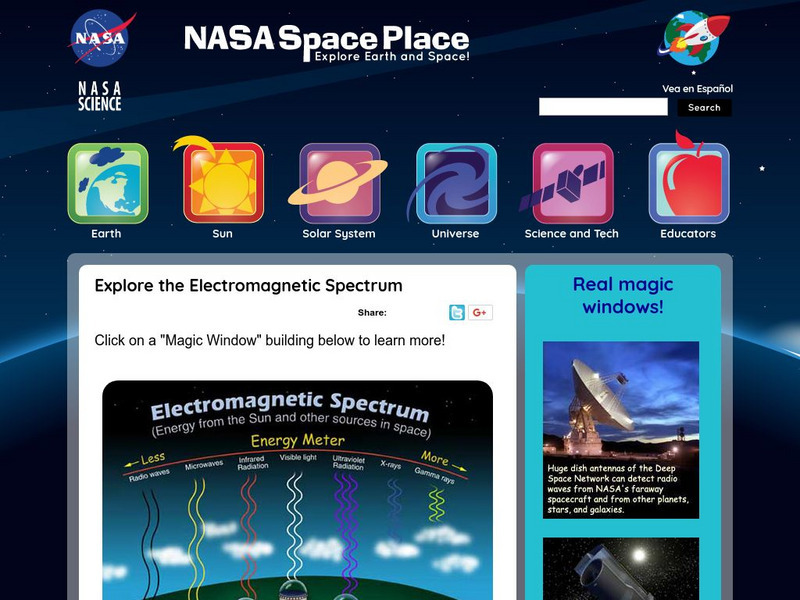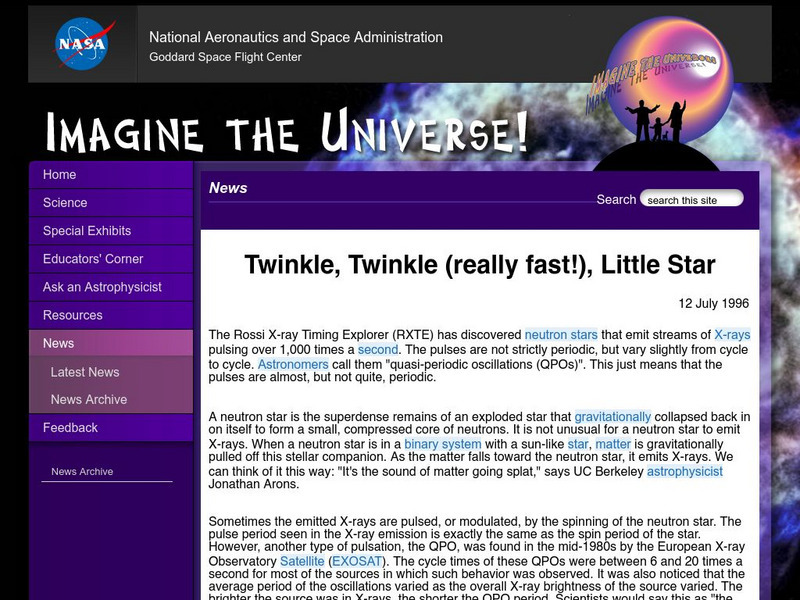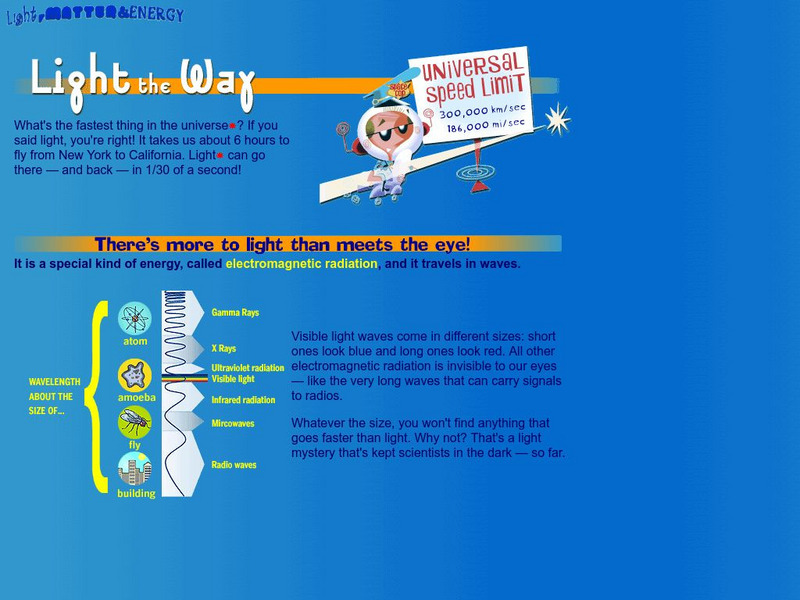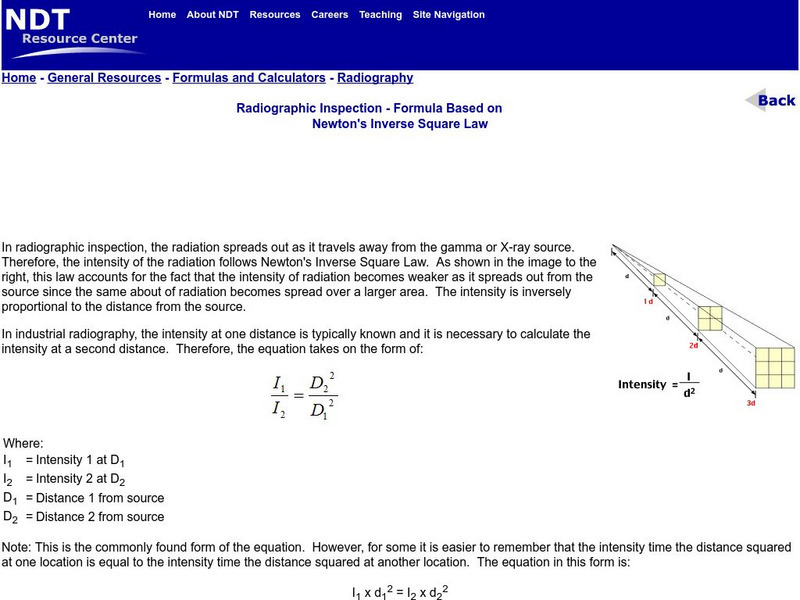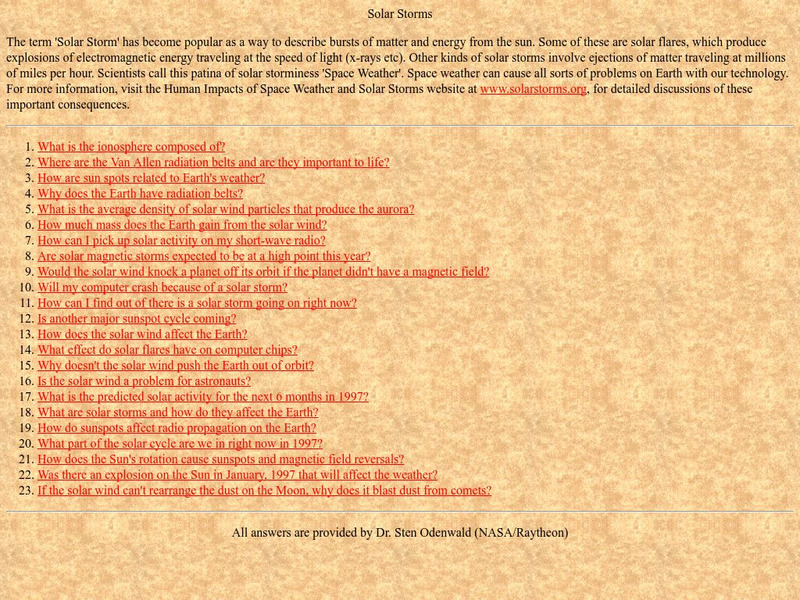PBS
Pbs: People & Discoveries: Ernest Rutherford
A lovely biographical piece about Ernest Rutherford. A number of personal notes, along with extensive information about the physics work he did. Nice quote at the end.
TED Talks
Ted: Ted Ed: Light Waves, Visible and Invisible
Lucianne Walkowicz shows us the waves just beyond our perception: microwaves, radio waves, x-rays and more. [5:58]
NASA
Nasa's the Space Place: A Trip to the Land of the Magic Windows
Explore the electromagnetic spectrum and learn about each type of energy on the spectrum.
NASA
Nasa: Imagine the Universe: "Twinkle, Twinkle (Really Fast!), Little Star"
"The Rossi X-ray Timing Explorer has discovered neutron stars that emit streams of X-rays pulsing over 1,000 times a second." Visit this site to read the rest of this article. Site offers additional resources as well as a Teacher's Corner.
American Museum of Natural History
American Museum of Natural History: O Logy: Light, Matter, Energy: Light the Way
What is electromagnetic radiation and how does it work? Review a captioned graphic that explains electromagnetic radiation and the visible and invisible types of radiation on the electromagnetic spectrum.
Famous Scientists
Famous Scientists: Maria Sklodowska Curie
Read about the life and scientific work of Marie Curie, possibly the most famous female scientist in history. In addition to providing biographical information, this page includes details on her scientific discoveries and her influence...
Other
American Institute of Physics: Marie Curie and the Science of Radioactivity
Resource provides an in-depth exhibit featuring Marie Curie and her contribution to the science of radioactivity.
My Hero Project
My Hero: Madame Curie
Use this site to learn about Marie Curie's scientific discoveries in radiation, which resulted in the creation of both modern cancer treatments and the atomic bomb.
Other
Nondestructive Testing Resource Center: Radiographic Inspection
This tutorial helps students learn about Radiographic Inspection through the concept of Newton's Inverse Square Law.
National Health Museum
Radioactivity: Historical Figures
A summary of the contributions of Wilhelm Roentgen, Antione Henri Becquerel, Marie Curie, and Ernest Rutherford on radioactivity.
NASA
Nasa: The Space Place: The Land of the Magic Windows
This is a site from NASA that contains an interesting and fun way to learn about the electromagnetic spectrum. Kate receives a strange riddle from her grandfather. Find out what it says and go through the gateway to the Land of the Magic...
Nobel Media AB
The Nobel Prize: Nobel Prize in Physics 1915 Presentation Speech
Read the 1915 Nobel Prize in Physics Presentation Speech originally given by Professor G. Granqvist, who was "Chairman of the Nobel Committee for Physics of the Royal Swedish Academy of Sciences." this speech touches on the...
NASA
Nasa: Imagine the Universe: Welcome to the World of Multiwavelength Astronomy!
This Imagine the Universe site provides an introduction into the multiwavelength universe and astronomy. Site provides graphics, links to a quiz, facts on this topic as well as teacher resources.
NASA
Nasa: Image Science Center: Ask the Space Scientist Earth
Site from NASA contains a collection of 91 questions pertaining to the Earth's atmosphere, magnetic field, ionosphere, rotation and origin of life.
Curated OER
Axaf
View the entire spectrum of electromagnetic radiation and get information on telescopes especially designed to view different wavelengths of the spectrum.
Mocomi & Anibrain Digital Technologies
Mocomi: Nikola Tesla Biography
Interesting biographical information, fun facts, and famous quotes about Nikola Tesla known for his work with alternating current.
Curated OER
Educational Technology Clearinghouse: Clip Art Etc: Wilhelm Rontgen
(1845-1923) German scientist she produced and detected electromagnetic radiation in a wavelength range today knob as X-rays or Rontgen rays, an achievement that earned him the first Nobel Prize in Physics in 1901.
Curated OER
Educational Technology Clearinghouse: Clip Art Etc: William Roentgen
A German physicist, of the University of Wurzburg, who, on Nov. 8, 1895, produced and detected electromagnetic radiation in a wavelength range today known as x-rays or Rontgen Rays.




